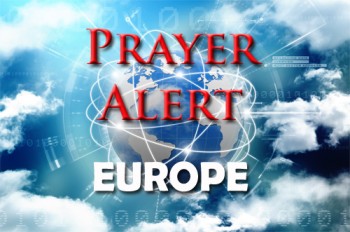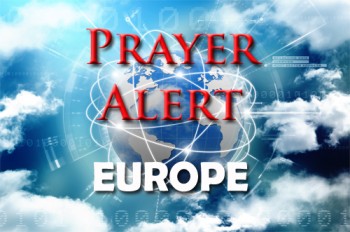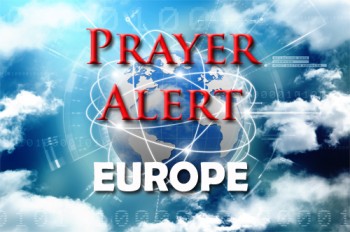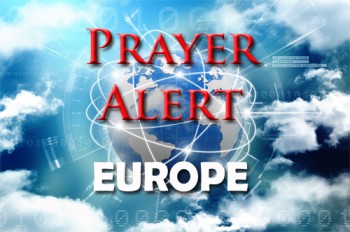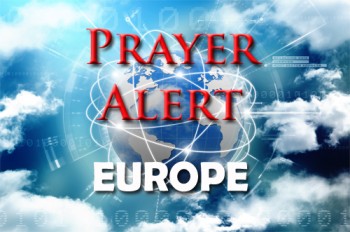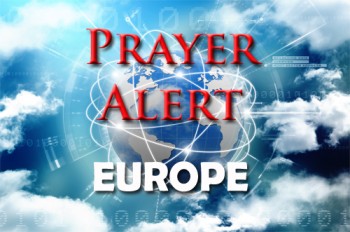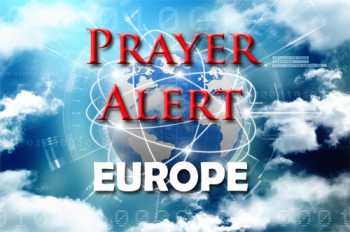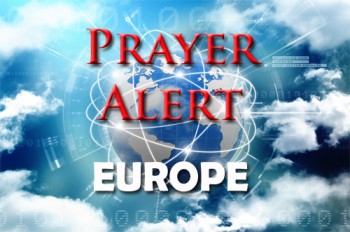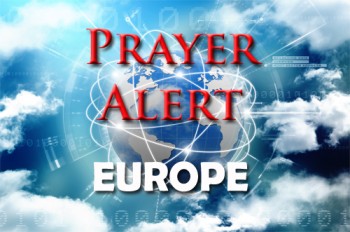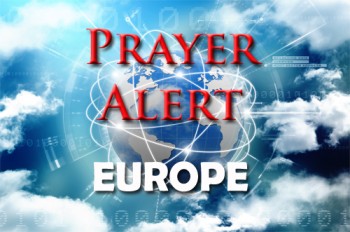Displaying items by tag: Europe
EU will raise more than €15 billion to fight coronavirus
April 7th was World Health Day was on 7 April. The theme for 2020 wasis to support nurses and midwives. Also this week the European Commission President Ursula von der Leyen said that the EU will secure over €15 billion to help fight coronavirus. ‘It is in our interest to ensure that the fight is successful worldwide,’ von der Leyen tweeted. ‘By standing united and working together, we can defeat this virus.’ With most of the European Union under lockdown and death tolls climbing in Italy, Spain, France and the UK, Europe has become the main focus epicentre of the global outbreak.
Italy: unrest in the south
Lockdown is the only solution to ending the pandemic, and Italy’s government has extended it beyond 3 April with no new deadline. In the south, hunger and hardship threaten to be even bigger problems than the virus, with regions beginning to feel the weight of the economic blow. Many residents are beginning to run out of food and money. An estimated 3.3 million Italians - one-third of whom are located in the south - work off-the-books for cash, making them unsure of when their next pay cheque will come. This concern has caused some southern Italians to plot raids against grocery stores, and authorities are worried the situation could become violent. Pray for the poorest southern regions - Sicily, Campania, Calabria, and Puglia - to know peace not violence as they begin to struggle for food and money. A private Facebook group, urging people to organise large raids on grocery stores and markets, is currently under investigation. One man addressing the government said, ‘You will regret this because we are going to have a revolution’. See
European shortage of fruit and veg
Suppliers say fresh fruit and vegetables in Europe could dwindle as the coronavirus pandemic hampers the global movement of produce and people across borders. Governments are looking at ways to ease shortages, including ‘green lanes’ to allow fresh produce to move across closed EU borders. A ‘shadow army’ of European harvesters could be recruited and travel rules for migrant workers loosened. Workers are being prevented from travelling between Europe and Africa due to grounding of flights. There is also a shortage of lorry drivers. Europe’s supermarkets rely on Kenya as their major supplier of green beans and peas, but the sector’s workers have been sent home on mandatory leave because orders cannot be shipped. Shipments from South Africa are also becoming tougher, with the country beginning a 21-day lockdown. These challenges are beginning to affect the usual plentiful supplies. See also the UK article ‘Feed the nation’.
Europe: Christian perspective
‘We grieve for those who have lost their lives or loved ones. We grieve about the physical, emotional, and financial repercussions of this pandemic. We are grateful for those working tirelessly to care for the sick, curb the spread, and create a cure and vaccine. But most importantly, we stop to remember these Biblical truths about COVID-19: God reigns OVER it. If the wind and sea obey Him, so does this virus (Matthew 8:27). He is IN THE MIDST of it. He’s our ever-present help in trouble (Psalm 46:1). He wants to do something THROUGH it. He has good purposes in ALL things (Romans 8:28). He can bring eternal hope OUT OF it. Millions are being forced to face their mortality. It is urgent that each one of them hears and knows the Hope of the Gospel. So let us lift our eyes from the headlines and fix them on Jesus, and pray - because no quarantine will ever stop its power and reach.’
EU: self-preservation
The European Union is showing major evidence of stress thanks to the pandemic. Every member state considers its own national interests over those of the rest of the EU. Economist Branko Milanovic called the crisis ‘a huge test of European solidarity’, as countries close borders and hoard medical equipment. When Italy requested help from other member states to fight the coronavirus not one responded, but China did. Germany and France were condemned for blocking the export of vital medical supplies, calling into question the bloc's solidarity in times of crisis. Pray for humility and compassion to replace nationalist dialogue, and for members to return to the founding principle of unity.
Croatia: earthquake rocks Zagreb
On 22 March a 5.3-magnitude quake, the largest in 140 years, brought panicked residents out into the streets at 6am. The interior minister told people, ‘Keep your distance. Don't gather together. We are facing two serious crises, the earthquake and the epidemic’. Many buildings cracked, with walls and rooftops damaged. Zagreb cathedral and parliament buildings were among the damaged structures. The earthquake prompted residents to flee to holiday homes on the coast: the police closed motorways and set up control points to prevent coronavirus spreading.
Europe: life in lockdown
Over 250 million Europeans are in full or partial lockdown as Belgium, Germany, Italy, Spain and France have closed schools and all non-essential shops and ordered people to stay at home. Italians in lockdown sing together from their balconies to boost morale and put candles in their windows in support of emergency workers, pharmacists, doctors, and all those putting their lives at risk. Pray for God’s protection over all these people. Italian children are making signs that say, ‘We will overcome this’. In France and Italy only one person from each household can go shopping. May God convict residents to comply with the government rules regardless of inconvenience. Intensive care in some regional care systems are ‘close to collapse’, despite efforts to free up hospital beds. Outside China, two-thirds of all cases and three-quarters of all deaths are in Europe. Europe has now recorded 600 more deaths than China.
Croatia: faith mixed with corruption
Many Croatians inhabit the land of the Dalmatian coast which in the 20th century became part of Yugoslavia. The region of Dalmatia is mentioned in the Bible, when Titus left Paul to go there. Croats had access to the Gospel very quickly, and different orders of Roman Catholicism worked among the people. For centuries Croats considered themselves Roman Catholic. Croatia nurtures religious freedom: there are Roman Catholic cathedrals and churches, Orthodox churches, Protestant churches, Islamic mosques, and other minority religions. However, the biggest problem is corruption. ‘Giving favours’, as it is called, is the way of thinking for many. Unfortunately, they do not consider it sinful or recognise the consequences of it for society in general.
Europe: coronavirus and Christian conferences
The Willow Creek 2020 Leadership Conference in Germany started on 27 February with 7,400 attendees, but ended abruptly after one of the speakers contracted coronavirus. The speaker was never present during the event, but was involved with the preparations. Three people who had contact with him have since tested positive for coronavirus. Also an EU prayer meeting due to take place in Zagreb was cancelled due to coronavirus. Pray for the organisers of the many planned 2020 gatherings to make wise decisions due to health and safety issues. Pray also for the plight of homeless refugees as borders and societies close down. See also
Finland: free speech
Finnish MP Päivi Räsänen was chair of the Christian Democrats from 2004 to 2015; as interior minister she had responsibility for church affairs. On 2 March she faced a police investigation because of a tweet she posted last year directed at the leadership of her church, questioning its sponsorship of the LGBT event ‘Pride 2019’, and quoting a Bible text. After a lengthy police interview last November, she now faces a second interrogation about a pamphlet she wrote 16 years ago on human sexuality for a Christian foundation. These sorts of cases create a culture of fear and censorship and are becoming common throughout Europe. In a free society, everyone should be allowed to share their beliefs without fear of censorship. Finland has a number of laws to regulate speech, including the ‘ethnic agitation’ law which carries a prison sentence of up to two years.
